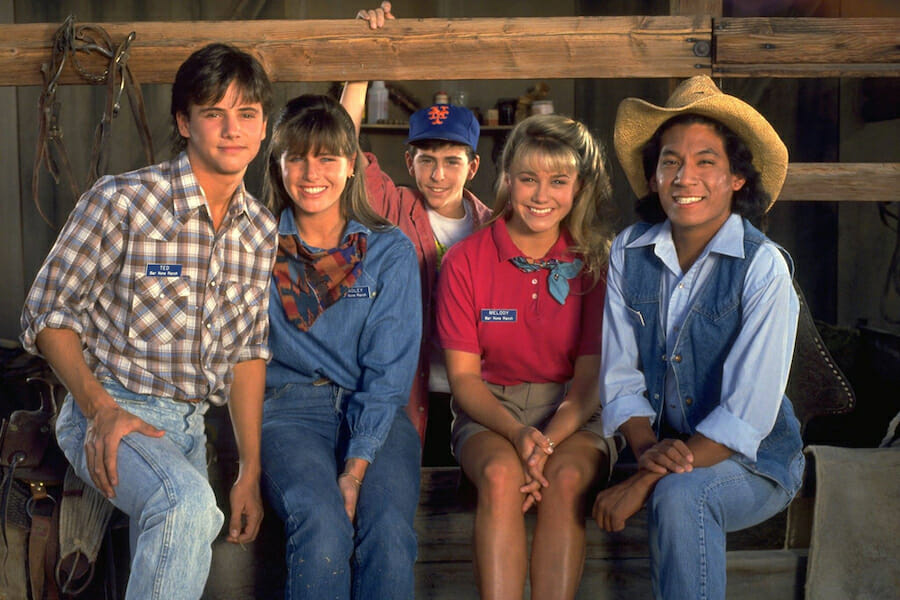
‘The Orange Years: The Nickelodeon Story’ Review
Slime. Perhaps that word conjures images of the 1984 film Ghostbusters, but for many who were kids in the 1980s and 1990s, slime is synonymous with Nickelodeon, and specifically the network’s game show, “Double Dare”. The Orange Years: The Nickelodeon Story, from co-directors Scott Barber and Adam Sweeney, traces the history of the still popular network, and visits with those who helped build the foundation.
The Nickelodeon network was officially launched in 1979, however the film teaches us how it was inspired by the TV show “Pinwheel,” and tested on QUBE, the interactive cable network whose pushbutton controller allowing immediate feedback from viewers was revolutionary. It’s difficult to imagine the days when there existed no network dedicated to entertainment for kids, yet the programming challenges faced in those early years are shocking. Nickelodeon was named after the original indoor moving picture theaters from the early 1900s (cost was 5 cents to watch), and the naming of Geraldine Laybourne as president in 1980 marked the beginning of explosive growth for the upstart “First Channel for Kids”.
Ms. Laybourne is interviewed here, and is worshipped by those who describe her as a progressive thinker and exemplary teacher. Her role in those early years was clearly crucial to the network, although after 16 years, she left to join rival Disney. The founding days are so thoroughly discussed that we learn Pantone 21C is the color used for the familiar orange logo…simply because orange is a “happy” color. With a goal to “Let kids be kids,” it’s quite obvious that those involved understood what kids liked and didn’t like. NickToons was established in 1991 with three gems: “Rugrats,” “Doug,” and “Ren & Stimpy”. Jim Jinkins was the creator of “Doug” and we learn much about him.
In fact, interviews are included from numerous members of the talent roster. Marc Summers, host of “Double Dare,” Melissa Joan Hart, star of “Clarissa Explains it All,” and Kenan Thompson of “Kenan and Kel,” who of course, has gone on to spend many years as a featured player on “Saturday Night Live”. These folks reminisce about the early years and how they understood they were changing the landscape of TV for kids.
This isn’t just about the stars. We learn about the opening of the Nickelodeon Studio in Orlando, and how it became a featured attraction on the Universal Studios tour. We also hear from the writers, producers, and creators, so that we get the full picture of how things came together and then developed. Some names we wouldn’t expect to be associated with Nickelodeon include Iggy Pop, Magic Johnson, Chris Farley, and Coolio. We see how each fit in. We learn about ‘middle-age kids,’ the beginnings of SNICK (with “Are You Afraid of the Dark?”), as well as the initial resistance to merchandising – termed “exploiting kids.” Of course, all of that changed with Nickelodeon Magazine, “SpongeBob SquarePants” (1999), and “Dora the Explorer” (2000).
The magazine and merchandising became a physical manifestation of the network’s programming, and of course, a substantial addition to the revenue stream. What’s most impressive with the backstory is how those behind the programming were so energized and committed to changing the world of children’s TV. There may have been game shows, slime, and Gak, but the real impact resulted from their understanding of kids…kids that are now adults, and admit to growing up watching Nickelodeon. It’s a legacy that continues today.
The Orange Years: The Nickelodeon Story is available on demand.
